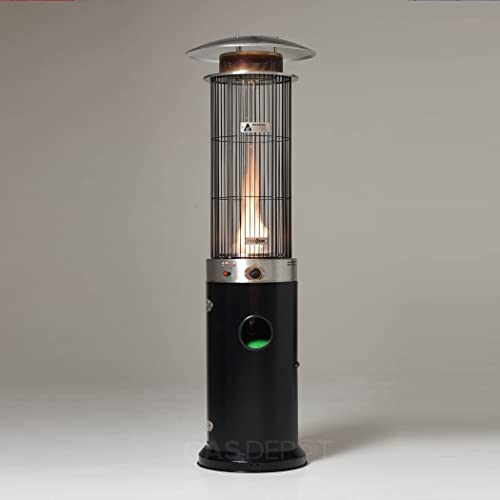The Essential Guide to Garden Heaters in the UK
As the nights attract and the seasonal chill begins to leak into the air, garden spaces frequently receive less attention. Nevertheless, with the help of garden heaters, home and outdoor lovers can extend their enjoyment of these spaces well into the cooler months. In the UK, garden heaters have actually evolved into an essential feature that adds heat, environment, and performance to gardens. This post explores the different kinds of garden heaters available, their benefits and downsides, and helpful pointers for choosing the best alternative for your outdoor area.
Tabulation
- Types of Garden Heaters
- Gas Heaters
- Electric Heaters
- Wood-Burning Heaters
- Patio Umbrella Heaters
- Fire Pits
- Advantages and Disadvantages of Garden Heaters
- Choice Guide for Garden Heaters
- FAQs
- Conclusion
1. Types of Garden Heaters
When picking a garden heater, it is essential to think about how effectively it warms the space while also matching the overall visual of the garden. Below are the most typical types of garden heaters offered in the UK market.
Gas Heaters
Gas heaters are powered by propane or butane, offering an effective source of heat that can warm a big location rapidly. They are typically seen at outdoor restaurants and coffee shops since of their efficiency.
Pros:
- High warmth output
- Portability
- Appropriate for large spaces
Cons:
- Requires routine refilling of gas
- Some models can be pricey
Electric Heaters
Electric heaters are getting popularity in residential gardens due to their benefit and ease of use. Available in various styles, they can be installed to a wall, set up in a ceiling space, or placed as freestanding systems.
Pros:
- Easy to operate
- No need for gas refills
- Offered in diverse designs
Cons:
- Dependent on electrical power supply
- Might have greater running costs compared to gas
Wood-Burning Heaters
Wood-burning heaters and stoves provide a rustic appeal, ideal for developing a cozy environment in the garden. They can work as barbecues and heating sources, making them multi-functional.
Pros:
- Provides a conventional visual
- Can also be utilized for cooking
- Eco-friendly if using sustainable wood
Cons:
- Requires more upkeep
- May produce smoke and ash
Patio Umbrella Heaters
Patio umbrella heaters are a fantastic alternative for those with outdoor dining sets. These heaters are generally developed to fit below a patio umbrella, supplying warmth to restaurants without blocking the view.
Pros:
- Compact and space-saving
- Easy to keep when not in usage
Cons:
- Limited heating radius
- Less powerful compared to other designs
Fire Pits
Fire pits have actually ended up being staples in lots of UK gardens, acting as both a heat source and a style function. Readily available in numerous shapes and products, they produce a social center for events.
Pros:
- Provides both warmth and environment
- Suitable for social gatherings
Cons:
- Requires supervision
- Not suitable for little areas
2. Advantages and Disadvantages of Garden Heaters
Choosing the right garden heater includes weighing the benefits and downsides associated with each type.
| Type | Benefits | Disadvantages |
|---|---|---|
| Gas Heaters | Quick heat, portable | Regular gas refills, expense |
| Electric Heaters | Convenient, diverse styles | Depending on electrical power, running expenses |
| Wood-Burning Heaters | Rustic appeal, multi-functional | Upkeep needed, can produce smoke |
| Patio Umbrella Heaters | Compact, simple to store | Restricted heating radius |
| Fire Pits | Warmth with ambience, social event | Needs guidance, space usage |
3. Choice Guide for Garden Heaters
Selecting the best garden heater includes considering several elements. Here are suggestions to keep in mind:
- Space: Measure your outdoor location to identify the size and output of the heater required.
- Budget: Set your spending plan early, thinking about both the initial financial investment and continuous running expenses.
- Design: Choose a heater that complements your garden's design and environment.
- Portability: Consider whether you require a stationary unit or one that can be easily moved and saved.
- Environment: Assess if you desire an environment-friendly choice like a wood-burning heater or if electric or gas will match your requirements more effectively.
4. Frequently asked questions
Q: How much heat does a garden heater produce?A: Heat output differs by model, usually ranging from 5 to 15 kW. Larger spaces may need heaters with greater outputs.
Q: Are electrical heaters safe to utilize outdoors?A: Yes, however ensure they are specifically designed for outdoor use to stand up to the aspects and prevent mishaps.
Q: Can garden heaters be utilized throughout the rain?A: While some heaters are water resistant or waterproof, using any electrical heater in a rainstorm is not recommended. Outdoor Heating Solutions may be more resistant.
Q: Do I require an authorization for a wood-burning heater?A: In some areas, wood-burning ranges might need a permit or must follow particular regulations. Constantly inspect regional laws.
Q: What upkeep do garden heaters need?A: Maintenance varies by type; normally, checking the gas supply, cleaning up fire pits, and making sure electric units remain in great working order is advised.
As the UK garden season advances beyond summertime, the inclusion of a garden heater can change an outdoor space into a year-round sanctuary. By understanding the range of heaters offered, their pros and cons, and customising them to fit one's needs, property owners can delight in epic gatherings under the stars, basking in warmth and ambience. The option of garden heater not just affects convenience but likewise raises the design of the garden, enabling individuals to delight in the terrific outdoors longer into the chillier months.

